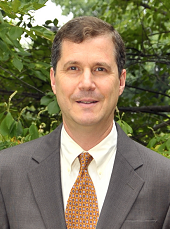Course Syllabus
Course Description
The course will cover the fundamentals of Management Science techniques in Project Management including: linear and integer programming, goal programming, multi-objective optimization, simulation, Analytic Hierarchy Process (AHP), deterministic and stochastic dynamic programming. Applications will be drawn from the Critical Path Method (CPM), resource management, and other areas of Project management.
Course Prerequisites
- ENCE 302 Probability and Statistics for Civil Engineers or some exposure to probabilistic modeling
- MATH 240 Introduction to Linear Algebra or some exposure to vectors and matrices
- MATH 140, Calculus I or equivalent
Required Course Text
- W. L. Winston,
Operations Research Applications and Algorithms (Fourth Edition)
Supplemental Course Texts (not required but helpful)
- S.A. Gabriel, A.J. Conejo, J.D. Fuller, B.F. Hobbs, C. Ruiz,
Complementarity Modeling in Energy, Springer, 2013 (available summer 2012)
(Buy on Amazon.com) - S.G. Nash and A. Sofer, Linear and Nonlinear Programming, McGraw-Hill, 1996.
Course Objective
Provide and overview of techniques and models used in decision modeling contexts.
Instructor
Dr. Steven A. Gabriel
www.stevenagabriel.umd.edu
Grading
The overall course grade will be derived from three areas:
- Weekly homeworks (will be graded 0 (nothing turned in), 1 (poor), 2 (good), 3 (excellent))
- two pre-announced take-home exams
- Case Study (will be multi-week assignment to be specified)
The distribution of the grade will be as follows:
- Homeworks 25%
- max{exam #1 score, exam #2 score} 40%
- min{exam #1 score, exam #2 score} 25%
- Case Study 10%
Course Policies
Students are encouraged to attend all lectures since the exams, homeworks, and case studies will be closely related to material discussed in lectures.
It is assumed that students will complete the homeworks by themselves although casual discussion with other class members is allowed. Homeworks will generally be given out each week and due at the start of class one week later, no late homeworks will be accepted unless it’s a family or medical emergency.
The course is subject to the Code of Academic Integrity available on the web. The Code prohibits students from cheating on exams, plagiarizing papers, submitting the same paper for credit in two courses without authorization, buying papers, submitting fraudulent documents, and forging signatures.
The University has a legal obligation to provide appropriate accommodations for students with disabilities. Please inform Dr. Gabriel of any accommodations needed relative to disabilities. Also, University of Maryland policy states that students should not be penalized due to observances of their religious beliefs. Please inform Dr. Gabriel of such instances well in advance so that appropriate steps can be taken.
Short Bio on Dr. Gabriel
Academic Experience: Besides teaching at University of Maryland, Dr. Gabriel has held appointments in the Mathematical Sciences Department at The Johns Hopkins University, and in the Engineering Management and Systems Engineering Department at The George Washington University. In addition, he has served as a postdoctoral researcher in the Mathematics and Computer Science Division at Argonne National Laboratory. Besides being a faculty member in the Department of Mechanical Engineering at UMD, he is also part of the faculty in Applied Mathematics, Statistics, and Scientific Computing. Also, he has also been: Director of the Master of Engineering and Public Policy Program (http://www.mepp.umd.edu) and Group Coordinator for the Civil Systems Program (http://www.civilsystems.umd.edu) within the Department of Civil & Environmental Engineering where he was a faculty member 2000-2015.
Industry Experience: Dr. Gabriel has over 25 years of industry and academic experience involving mathematical modeling of engineering-economic systems with applications in energy, transportation, service performance, and operations management. His specialties include optimization/equilibrium modeling.
![]()
ENCE603 home | Syllabus | Schedule & Homeworks | Case Study | Downloads & Links
